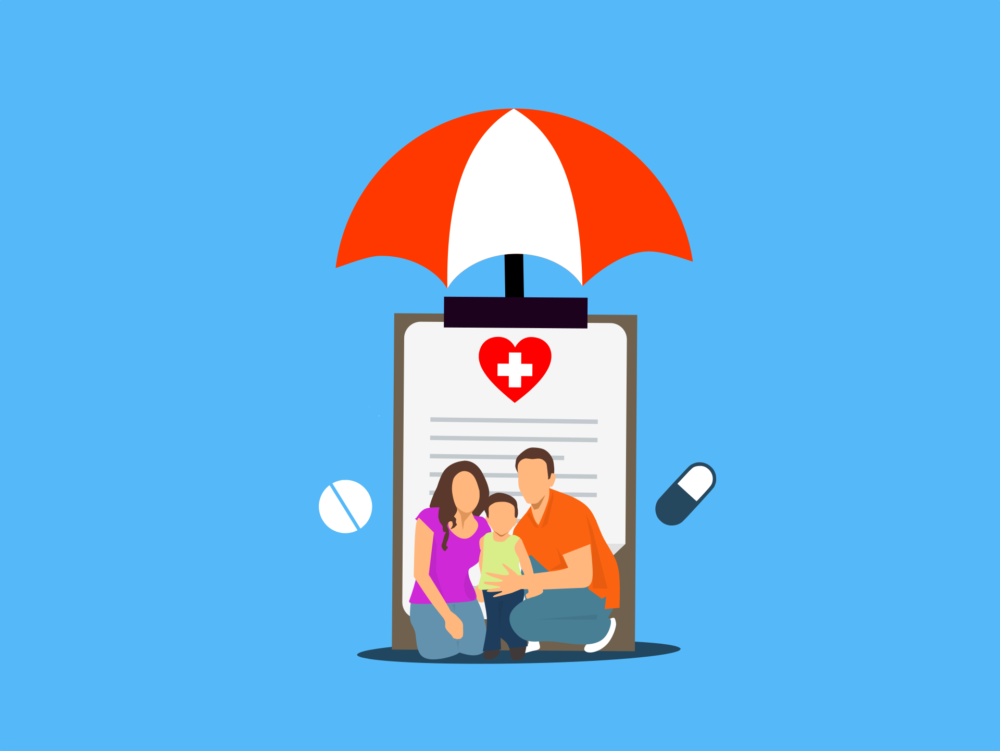Health Insurance VS Life Insurance – Everything That We Need to Know

Understandably, some people could not understand the distinction between health insurance and life insurance, given the widespread interchangeability of insurance words. But since the distinction is significant, we’ll outline it in this article.
Health insurance
In the UK, the term “health insurance” frequently refers to private medical insurance, which provides healthcare services that must be paid for out of pocket, as opposed to the NHS, which is available for free. Individually or as a family with your partner and kids, private health insurance is typically available. Even though we are all appreciative of our amazing NHS, there are certain benefits to thinking about private health insurance.
- You can visit a doctor more rapidly for faster treatment. Some patients may have to wait up to 18 weeks before receiving treatment, according to NHS England and NHS Improvement. On the other side, private medical facilities frequently state that it takes 2 to 4 weeks to see patients and release them.
- On a ward, you can frequently receive a private room.
- Additional treatments – even if the majority of medications and treatments are provided by the NHS, you could need to pay for private healthcare if you have a specific need. Some cancer medications are only available through private healthcare; the National Institute for Health and Care Excellence (NICE) decides whether a treatment is affordable enough to be used by the NHS.
What is covered by private health insurance?
What services may you possibly be eligible for if you get private health insurance? The advantages that each private health care provider will provide may vary, but here are some potentials:
- Private rooms are available at a variety of private hospitals
- Specialized therapies not accessible through the NHS
- Outpatient treatment and private consultations
- Access to novel medications, frequently before they are made accessible on the NHS
- Digital tools and online medical services
- Dial advice without seeing a doctor
- Discounts and deals with particular brands
What is excluded from private health insurance?
Although you could have access to a variety of therapies with private health insurance, your policy might not cover you if you have any chronic long-term diseases or pre-existing conditions, which you would have to reveal when applying for health insurance. Moreover, you might not be covered for pregnancy and delivery by some insurance. In contrast, everyone who is “ordinarily resident” in the UK is eligible for free universal healthcare through the NHS.
Life Insurance
The financial strain that your death can have on your loved ones might be reduced with the aid of life insurance.
The following are just a few benefits of life insurance:
- Assurance and peace of mind: If you die while the insurance is in effect, your loved ones will be financially secure. As a result, your loved ones may experience less worry at a trying time and won’t have any more interruptions because the money will be taken care of.
- Confidence: Unless you make changes to your insurance, your premiums won’t change. Additionally, your loved ones may file a claim as long as your premiums are paid during the insurance period.
- Flexibility: You get to decide how much coverage you need and how long you need it. Additionally, if you add critical illness coverage, it could pay out if you get a certain critical illness and become critically sick.
Choosing between life and health insurance
Before submitting an application for any form of health plan, you should take into account the significant variations between health and life insurance. They are essentially dissimilar ideas: health insurance is intended to cover the expense of medical care while you are still living, such as urgent surgery or quicker doctor visits.
In contrast, life insurance pays your loved ones a cash payout if you pass away while the policy is in effect. A life insurance payout is a one-time occurrence that may be used to cover the mortgage or other one-time expenditures.
Is it possible to have both life and health insurance?
Yes, you may get a combined health and life insurance policy from some insurers, or you can purchase two separate ones. Having both insurances in place may increase protection for both your family’s financial future and general health.
In conclusion, when an insured person dies or the time to which the policy is applicable expires, the listed person or insured generally gets the sum promised. When it comes to health insurance, policyholders do not receive reimbursement at the conclusion of the policy period; nevertheless, in the event of a medical emergency, medical expenditures are repaid or cashless treatment is provided, provided the amount is covered.








